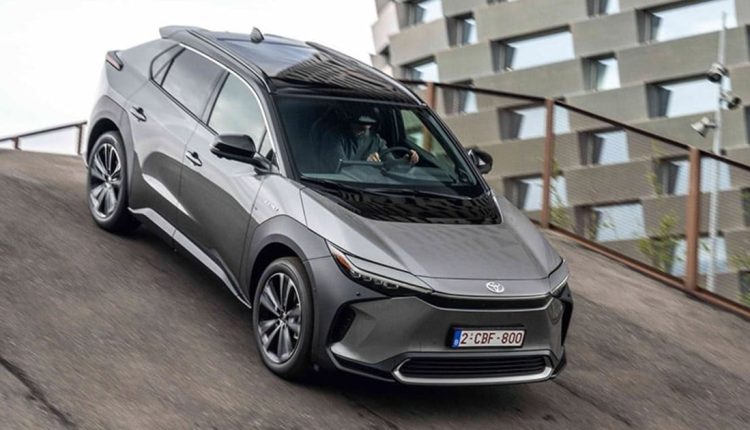TOKYO — Toyota’s radical electric vehicle overhaul will deliver a plethora of knock-on benefits beyond the next-generation of Tesla-fighting Toyotas that start rolling off the line from 2026.
Breakthrough manufacturing processes will be applied to factories making more conventional vehicles as well. Meanwhile, the new all-electric platform being engineered from scratch may even be shared with partner automakers, helping Toyota expand scale and further slash costs.
All of Toyota’s global operations will cash in on the EV shift, not just its nascent EV business.
Top brass at the world’s biggest automaker outlined the multiplier effects on Tuesday in the latest briefing on their plan jump ahead in the global electric vehicle race in just a few short years.
The road map, pioneered by new CEO Koji Sato, calls for new engineering of Toyota’s products as well as its factories. On the manufacturing side, Toyota plans to halve the number of production processes, halve the amount of plant investment and halve the amount of production lead time.
In product, Toyota will roll out a new EV platform, a new software operating system and a wave of advanced batteries that could deliver EV driving ranges up to 1,500 kilometers (930 miles).
Those more competitive next-generation EVs will hit the market in 2026. And by 2030, Toyota expects to sell 3.5 million EVs annually, including 1.7 million riding on this newly engineered EV architecture created inside Toyota’s so-called BEV Factory business unit.
Toyota expects wider gains by using the new toolbox of technologies across the company.
“Those technologies should not be applied only to battery electric vehicles,” BEV Factory President Takero Kato said. “It’s about increasing our quality and flexibility. We will be able to streamline all our manufacturing and production activities through this activity.”


